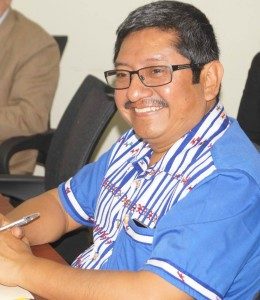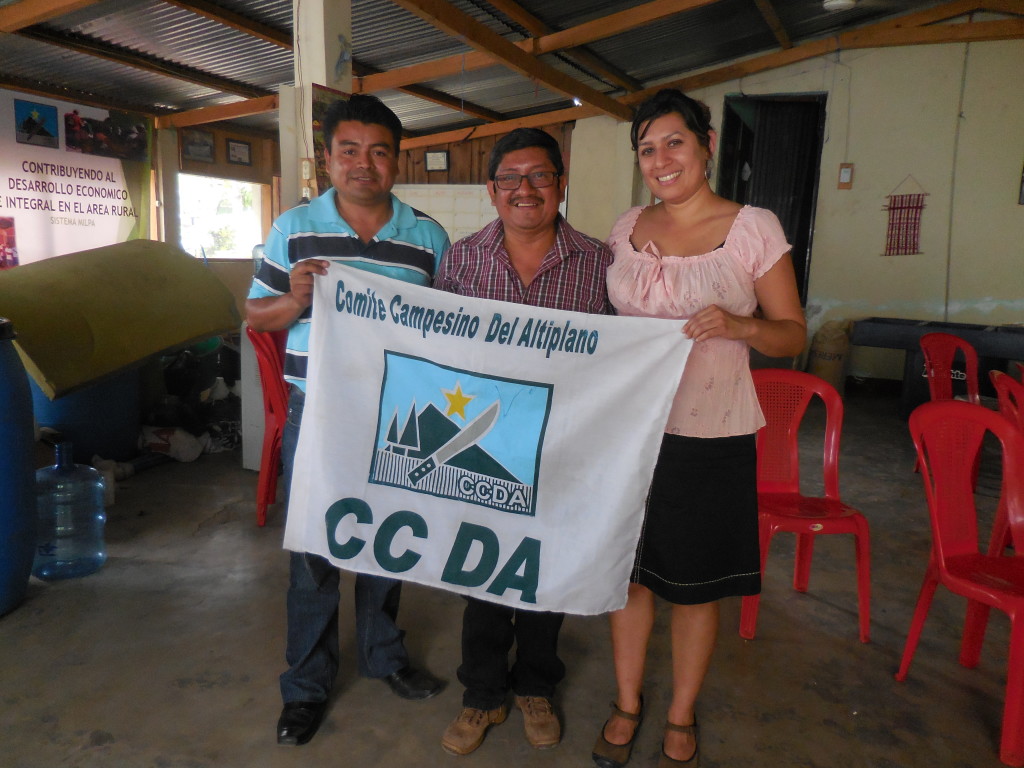Original post by Katherine Zavala for Thousand Currents on February 16, 2016.

In an unprecedented move, grassroots leaders in Guatemala were voted into Congress during last year’s elections. Leocadio Juracán, staff of one of Thousand Currents’ catalyst grantees, el Comité Campesino del Altiplano (The Peasant Committee of the Highlands, or CCDA), was one of these grassroots leaders.
Juracán rides a beacon light of hope. 2015 was quite the year for CCDA and for Guatemala. The year started with CICIG (United Nations International Commission against Impunity in Guatemala) bringing to light a case of deep corruption within the government. This case ignited a broader movement within civil society, encouraging thousands to go to the street to express their frustration with corrupted systems and impunity. This continuous protest movement pushed for the resignation of the Vice President, and ultimately of the President himself.
Prior to being elected to Congress with an alternative political party, Convergencia (Convergence) last year, Juracán has been advocating for social justice for over three decades as the general coordinator for CCDA. Convergencia represents the voice of the marginalized; those of indigenous and peasant farming communities.
Born to a rural indigenous Mayan family, Leocadio knows first hand the struggles of his people and the power of community organizing. I asked Leocadio a few questions about his election and what he envisions for his role in Congress.
Katherine Zavala: Why is it so significant that you won the seat?
Leocadio Juracán: In a country like Guatemala, which has high levels of discrimination and inequality, where economic powers maintain political control, many of the officials are linked to corruption. Deputies have normally financed their campaigns with dirty money.
It is important that a member of a social organization, identified as indigenous and as a peasant farmer, reaches this space to democratize the country, but also use this space to move forward the demands of the population it represents.

KZ: What does this win mean for Guatemala in general?
LJ: At present there is widespread dissatisfaction in the country with politicians because they are people linked to corruption and illicit enrichment. Many of them have been in the Congress for more than 12 years without seeing much progress in the lives of local population. That is why citizens are demanding for institutions to be renewed.
However, we do have to recognize that civil society has not previously made political participation visible, nor has it held a position in an institution that advocates and approves the country’s legislation, or approves national budgets. This makes it more important that someone from the marginalized communities is now in this space, to vocalize the need to invest in indigenous people and the peasant population.
This also would be a first step to have more social movement leaders access these spaces and thus, restore transparency in the state institutions.
KZ: What do you wish to accomplish during your time in office? What is your hope?
LJ: My role seeks to be a liaison between the [peasant] movement and the Congress, to advance the people’s and and social movements’ agenda, like the Integrated Rural Development Act (Bill 40-84), the transparency law packages, the Sacred Areas law, the law of community radio stations, recognition of native seeds as the heritage of the communities, and promoting the creation of the agrarian tribunal courts.
I want to ensure that I can share and advocate the aspirations of the rural population, especially of our marginaized communities. I also want to be accountable to to our people, informing them on what is happening in Congress.
I want to ensure that the voice of farmers is strongly present. This is the first time we are represented in such a way at Congress.